In this episode, we welcome back the sociologist of religion, Gerardo Marti, to explore modern culture’s dynamic and complex spiritual crisis. Inspired by a vivid dream where Gerardo, Tripp, and a host of famous dead sociologists spent a week on the beach discussing religion, secularization, and the meaning crisis. The conversation delves into the multifaceted influences shaping our religious and spiritual landscapes. Topics include the historical evolutions of religious movements, the role of modernity in creating meaning crises, the impact of disenchantment and exclusive humanism, and the intersections of masculinity and identity in contemporary times. Whether discussing the procedural intricacies of revivalism, the transformative power of community found in choirs, or the overwhelming drive for control in modern structures, Tripp and Gerardo have fun nerding out. This engaging discussion doesn’t shy away from the difficult questions and offers insightful reflections on how we navigate meaning in an ever-changing world.
Dr. Gerardo Marti is a professor of Sociology at Davidson in North Carolina. His research centers around race, ethnicity, religion, identity, inequality, and social change. Through his research, he works to uncover the dynamics of contemporary issues like diversity, religious innovation, and political power.
Gerardo’s Previous Visits to the Podcast
Thesis: The Meaning Crisis as a Constant Feature of Human Society
Core argument: The meaning crisis is not new but has accelerated in modern society due to material conditions and shifting mental structures that make navigating multiple meaning systems more challenging.
"I think in many ways, the meaning crisis has been there for a very long time. If anything, it's just been accelerated in different ways so that we are having not just like one giant crisis of meaning at certain critical periods of life... Now, it seems like we're... it's happening, on a monthly, weekly, maybe even on a daily basis." [05:19-05:33]
I. Historical Context of Meaning-Making
A. History is always unstable, not equilibrium
Historical periods often portrayed as stable were actually full of disruption and contention
The Roman Empire, Byzantine period, and Crusades were all periods of instability
The concept of historical equilibrium is largely a myth
"Every time we pick up something that really goes into some really Great depth and literally on any period of history, it highlights how much more contentious and how much more, of of a shot of shockwaves and disruptions were occurring." [08:32]
B. The shift from East to West after the Crusades
After the Crusades failed, Western powers turned their attention westward
Discovery of new territories led to colonization, slavery, and economic restructuring
This westward shift established frameworks we still live under today
"Once this new territory to the West was discovered, once this Entirely different framework where you can find land materials and people to enslave. That was the decisive shift westward. And that was not a moment of equilibrium either." [09:27]
C. The pursuit of leisure as underlying modern meaning
Modern humans seek leisure as a primary goal
This pursuit requires wealth and stability
The disruption of leisure contributes to meaning crises
"One of the goals that we have as people who live today is leisure... the pursuit of leisure is actually at the root of our desire to, um, to, to feel like we're all stable and good. And life is the way it should be." [11:32-11:58]
II. Material Conditions vs. Mental Structures
A. The interplay between material conditions and mental structures
Material conditions shape the mental structures available to us
Communities traditionally provided stable mental structures
Familiarity supports meaning; novelty disrupts it
"When we look back. We look back at living in communities... that stable community gave us mental structures. You don't, you don't figure things out. You're told the recipes for knowledge of how to understand the world." [15:24-15:59]
B. How material changes disrupt mental frameworks
Urbanization, immigration, and technological advances created rapid change
Scientific breakthroughs challenged fundamental assumptions
Generational knowledge transmission became less reliable
"When the pace of change happens more quickly and when other things start to intrude that are new and novel, you can no longer trust generational transmission." [22:50]
C. The shift from community to individual meaning-making
Modern individuals participate in multiple communities simultaneously
Each community has its own knowledge structure and meaning system
Individuals must bridge these different meaning structures
"Human beings individually find themselves increasingly trying to bridge or at least cross between different meaning structures in order to be able to live out their everyday lives." [25:00]
D. The modern burden of self-narration
Modern individuals must craft their own identities
No single social structure provides a complete sense of self
This creates a constant pressure to negotiate and maintain identity
"The individual cannot simply adopt an entire knowledge framework from any particular structure, even though each one wants to dominate you." [28:00]
III. Religion and Modern Identity
A. The evolution of American religious identification
Immigration in the 1880s-1890s created nativist panic
Religious communities formed along ethnic lines
By the 1950s, white ethnic groups had amalgamated into a broader "white American" identity
"White ethnic groups like the Swedes... establish churches and religious communities that were not just Christian, but they were also ethnically based with many churches having that native language, at least in those first few decades." [35:00]
B. The formation of evangelical identity as reaction
Mainline churches began addressing social issues (women's roles, sexuality)
Conservative Christians left to form their own communities
They established alternative institutions (colleges, publishing houses, media)
"Evangelicalism in America was birthed out of people who left the American church, because it was becoming too progressive and what they created were new religious enclaves." [37:53]
C. The tension between personal conviction and community
Luther's emphasis on personal conviction created ongoing tensions
Individual interpretation leads to divergent applications
Religious communities form around shared interpretations
"When you ask what would Jesus do? My answer is not going to be the same as the person right next to me... people who are absolutely convinced that if Jesus were alive today, he would vote this way... And there are others who are like diametrically opposed." [57:51-58:13]
IV. Technology and Communication Changes
A. Algorithmic mediation of experience
Algorithms increasingly shape our experiences without deliberation
They determine what information we're exposed to
This bypasses conscious meaning-making processes
"The algorithms are dictating more and more parts of our lives, and we're not even in a deliberative process at all. It's just a statistical coding model that is assuming that this is the best way." [33:00]
B. Social media reinforcing epistemic bubbles
Technology enables people to find communities that affirm their existing beliefs
This creates simultaneous personalization and tribalization
People no longer recognize their mental structures as socially given
"We can constantly find places that eagerly embrace the convictions that I hold... I feel both personally affirmed, but also I become more tribalized as a result. So the tribalization and the personalization of conviction is happening simultaneously." [59:11-59:35]
V. Crisis of Authority and Deliberation
A. The bypass of democratic process
Executive orders and direct mandates bypass deliberative processes
Attempts to impose singular views without negotiation
Reflects belief that disagreements are irreconcilable
"The fact that we have more of an attempt to rule the world through executive orders... is bypassing the entire process of politics. It's bypassing the entire process of deliberation." [31:27]
B. The challenge of listening across difference
Even in close relationships, listening is difficult
Democracy requires deliberation across profound differences
Complex problems require complex decision-making processes
"We need something that's much more fluid, much more changeable, and much more responsive to human community, over time." [47:54]
C. Habermas and communicative negotiation
We live in a post-metaphysical era with multiple valid perspectives
Democracy requires active negotiation with others on equal footing
This process has no endpoint but continues indefinitely
"Habermas makes clear we live in a metaphysical way of thinking now... We have to negotiate that there are going to be many different approaches... he emphasizes the communicative process." [25:22-25:51]
VI. Gender, Power, and Meaning
A. Masculinity crisis as parallel to meaning crisis
Disenchantment affects both religious frameworks and gender roles
Assumptions about masculinity are being challenged
This creates existential anxiety similar to religious disenchantment
"The closest peril that we may have there is we have accepted largely the notion of disenchantment when it comes to a transcendent sense of connection to the sacred and the spiritual... equally difficult, but the one that we're living through now is a sort of disenchantment about the assumptions about what it means to be a man." [51:30-52:00]
B. The gradual expansion of freedom and equality
Historical expansion of rights (voting, property) initially benefited white men
Further expansion to other groups was seen as diluting privilege
Current social changes follow this pattern of expanding freedoms
"The pulling back of [historical privilege] is creating the condition for reasserting it and with a belief that somehow if we don't reassert them that we have lost something fundamental about ourselves." [53:39]
C. The resistance to solidarity across difference
Hierarchy and power structures resist egalitarian changes
Movement from uniformity to community to deep solidarity
Resistance emerges when privilege is threatened
"That steady progress of freedom agency, a more radical egalitarianism that's supposed to extend to every person regardless of their assignment of gender... And I think people find that hard, right? It's about hierarchy and people want to invoke a hierarchy." [54:00-54:33]
Conclusion: The Sustained Challenge of Modern Meaning-Making
Final thesis: Meaning crises are not solvable through returning to older frameworks; they require ongoing negotiation across different meaning systems in an increasingly diverse world.
Religious ecstasy and perfect meaning cannot be sustained
Attempts to enforce singular meaning systems typically fail
Modern meaning-making requires navigating plurality and change
"If you define ultimate meaning as the ecstasy of religious experience, that that's the only true moment at which you are really who you're supposed to be, then you're constantly going to be disappointed because the human body does not seem to be made for living in that moment, you know, over and over again." [15:00]
Substack Paid Members Livestream
Join Ryan Burge (Graphs about Religion) and Tripp Fuller (Process This) for an illuminating livestream conversation exploring the dramatic transformation of America's religious landscape.
Distrust and Denominations in the 21st Century
Friday, March 7th (12noon PT / 3pm ET)
This conversation will be livestreamed for paid subscribers.
Using compelling data visualization, they'll unpack:
The accelerating decline of trust in traditional religious denominations
The remarkable rise of non-denominational churches across the country
What these trends reveal about changing American religious identity
The social and political implications of these shifts
Through analysis of multiple datasets and striking visualizations, Burge and Fuller will examine how Americans are reimagining their relationship with organized religion in the 21st century. Their conversation will explore not just what's changing, but why these shifts matter for understanding modern American society.
Join Our Five-Week Online Lenten Class!
Join Dr. John Dominic Crossan for a transformative 5-week Lenten journey on “Paul the Pharisee: Faith and Politics in a Divided World.” This course examines the Apostle Paul as a Pharisee deeply engaged with the turbulent political and religious landscape of his time.
Through the lens of his letters and historical context, we will explore Paul’s understanding of Jesus’ Life-Vision, his interpretation of the Execution-and-Resurrection, and their implications for nonviolence and faithful resistance against empire. Each week, we will delve into a specific aspect of Paul’s theology and legacy, reflecting on its relevance for our own age of autocracy and political turmoil.
ASYNCHRONOUS CLASS: You can participate fully without being present at any specific time. Lectures and livestream replays are available on the Class Resource Page.'
CHURCH GROUPS: You are welcome to use this class for your Sunday School class or small group! More details available via the button below.
COST - PAY WHAT YOU WANT: A course like this is typically offered for $250 or more, but we invite you to contribute whatever you can to help make this possible for everyone (including $0)!
Join Us at Theology Beer Camp!
3 Days of Craft Nerdiness with 50+ Theologians & God-Pods and 600 new friends! Get your tickets before we sell out!
Have You Joined Theology Class Yet?
Process This with Tripp Fuller is a reader-supported publication. To receive new posts and support my work, consider becoming a free or paid subscriber.







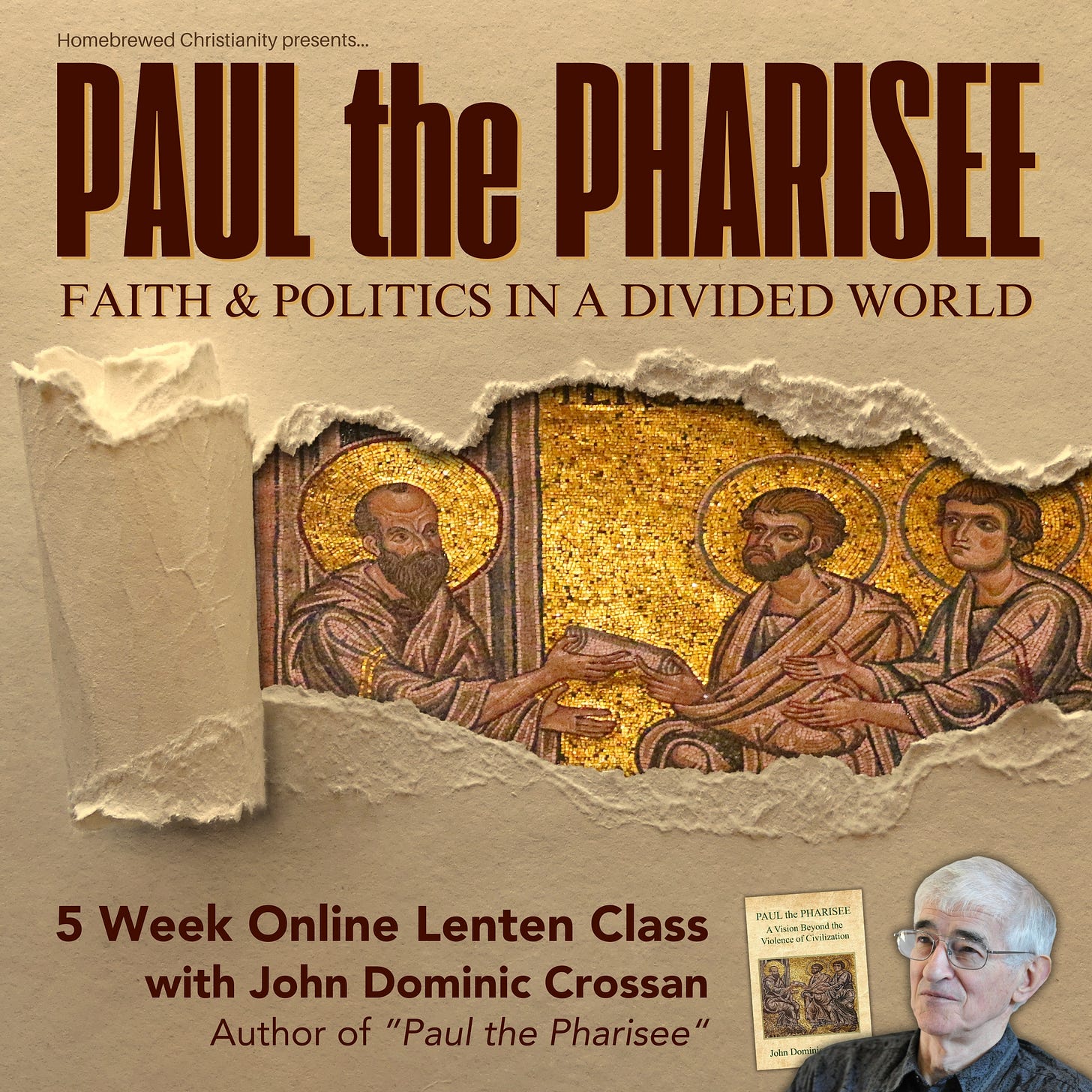
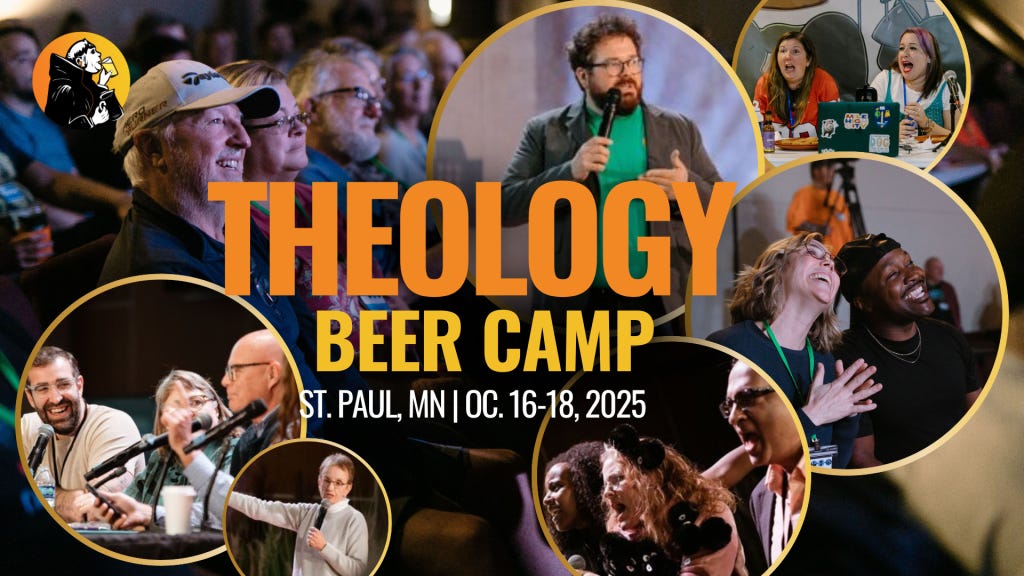
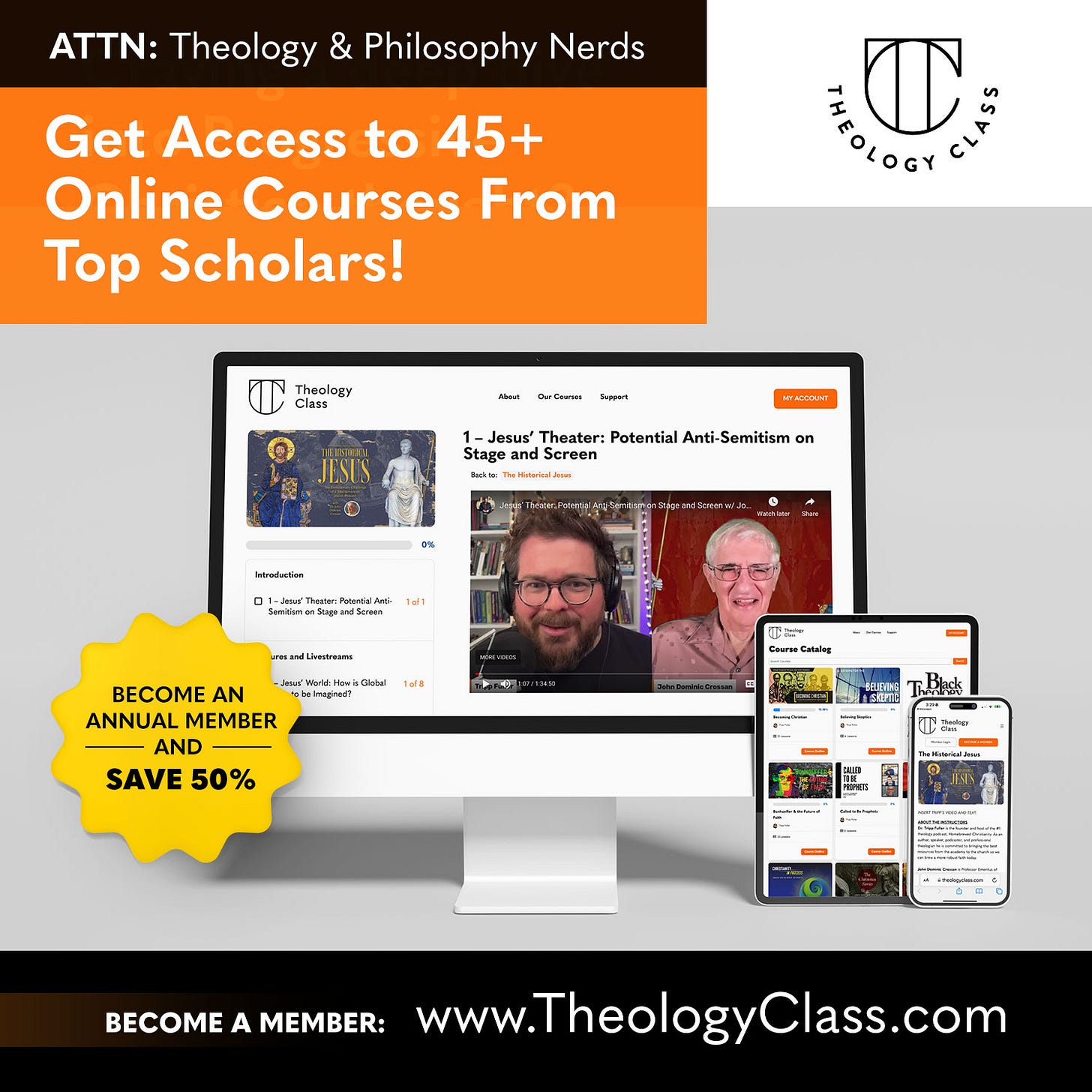




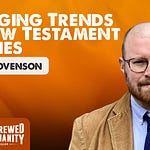
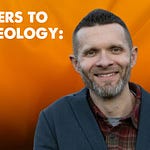
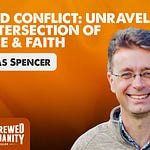


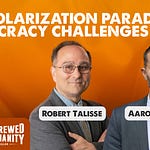

Share this post